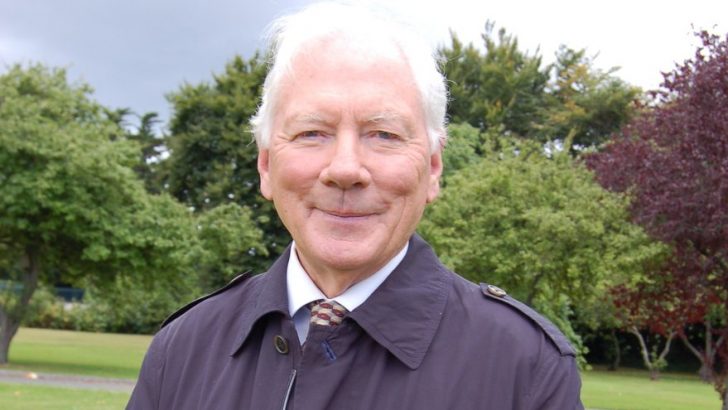The only thing new I learned from Last Orders with Gay Byrne, RTÉ 1, Tuesday night of last week was that Gay Byrne played the organ in church in Rialto. Everything else in this review of the decline of the Church in Ireland has been rehashed ad nauseam.
I can understand increasing the programme’s audience by tagging on ‘with Gay Byrne’, but I’m weary of so much having to be filtered through celebrities. I’m glad the days of obsequious deference to Church figures, as outlined in the programme, is largely gone, but ironically we seem to have replaced it with an adulation for media figures.
Gay Byrne certainly wasn’t, and I suppose never claimed to be, an objective voice – he showed old and predictable clips from The Late Late Show, instrumental, not just in replacing one deference with another but also in breaking down old values, when some valuable babies went out with some dirty bathwater.
Despite the title, only some of the focus was on religious orders, and as such it was mostly about the Christian Brothers. Byrne paid tribute to a Christian Brother he admired but had generally felt fearful going to school in Synge St, while accepting that the experience of others may have been different. The ‘amazing’ role of the Christian Brothers in providing an education to boys, an education that the State wasn’t providing, was acknowledged, and there was an impressive montage of famous people thus educated, but there was darkness as well that went beyond corporal punishment.
I thought the programme could have done a lot more to give insight into why, for some brothers, the idealism took a twisted path. There were only hints at emotional immaturity, lack of preparation, and classes with what Byrne called “ferocious overcrowding”.
Byrne spoke of the Church “floundering into non-existence”, but what was largely missing from the show (apart from Diarmuid Ferriter) was any sense of a resurgent and humbler Church, a laity with a deeper, brighter and more enthusiastic faith.
The only glimpse we got was a 2016 clip of Archbishop Diarmuid Martin taking part in a mercifully pomp-free celebration of the Stations of the Cross in the Phoenix Park.
Initiatives
On the ignored list was the recent Eucharistic Congress, the many new parish-based initiatives, the thousands of young lay catechists in our schools, the joyful young Catholics attending all those World Youth Days.
Benedictine monk Mark Patrick Hederman had much to say. Sometimes I thought he overstated, like comparing education in the past to the training of dogs, but he rightly noted the smugness of that past.
Mind you, there was also, I thought, a tendency to smugness in the show’s knowing and self-congratulatory attitude to past failings. Hederman hoped the Church would have a bright future, if it focused more on the laity and the message of Jesus – if it was a Church of the people and for the people.
If that programme was a sort of reverse nostalgia, Stranger Things (Netflix), a US sci-fi mystery drama, was marked by nostalgia for film and TV’s past, especially the 80s. I caught up with the final episode last week and while I wasn’t disappointed, I had mixed feelings. Lots of the characters were unappealing, the plot was derivative, and an actress I like, Winona Ryder, was underused, being mostly in hysterical mode. But I got hooked. I was constantly reminded of The X-Files, ET, Stand By Me and more.
At one stage during a BMX bike chase I thought the bike was going to take to the skies to be silhouetted by the moon; fortunately they resisted that temptation.
The most appealing thing about the show is the children – spunky, smart, good at heart, but inflicted with often clueless parents.
The story is not all sweet and innocent though, and there’s lots of swearing, even from the children, and some relatively mild sexual content. The ending was highly dramatic, and satisfying to an extent – closure but with plot openings for a second series.
Finally, isn’t it funny how news priorities move on? Previously it was all about Maynooth, then last week’s scandal was strange goings on in relation to Ireland’s Olympic tickets. Despite that, the Olympic coverage still featured stories of great courage, dedication, achievement and sometimes even public displays of prayerful gratitude to God, and, over all that, the iconic Rio statue of Jesus with arms outstretched.
Pick of the week
SATURDAY MATINEE: SIMON BIRCH
RTÉ 1 Saturday,
August 20, 12.40 pm
(1998) A young boy with stunted growth is convinced that God has a great purpose for him.
WHERE GOD WEEPS
EWTN Saturday (night,) August 20, 2am
James Stapleton comments on the cruel reality people face as refugees, as he details the ways “Jesuit Refugee Service” assists those who have been displaced.
MASS
RTÉ 1 Sunday,
August 21, 11.00 am
Fr Gregory Carroll OP celebrates Mass this part of the celebrations for the 800th anniversary of the founding of the Dominican Order.


 Brendan O’Regan
Brendan O’Regan
